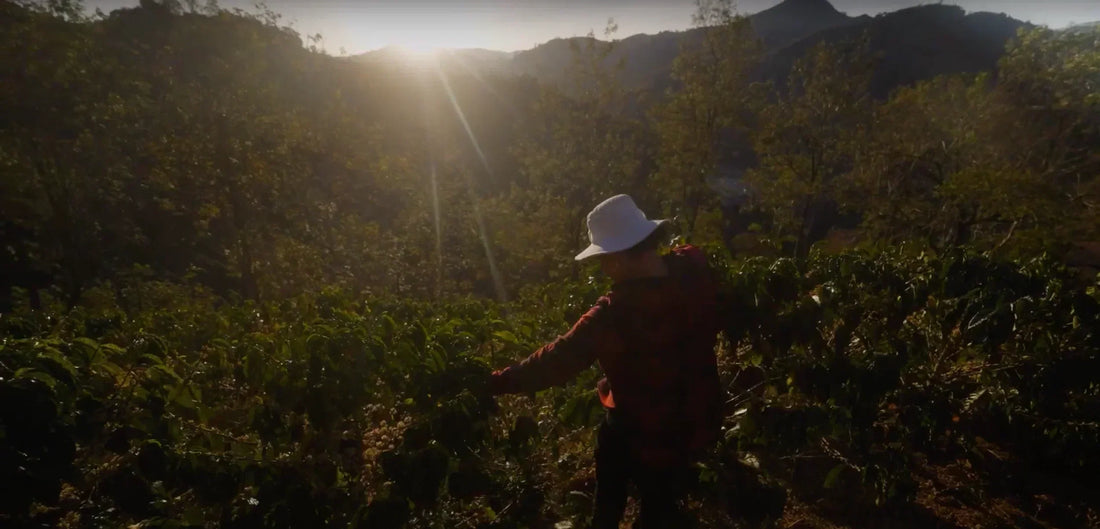
Our Commitment to Sustainability and Transparency
Last updated: October 2025.
At the Stillwater Coffee Club, we believe great coffee should support the people who grow it and minimize harm to the planet. In bringing you coffee from Canada’s best roasters, here’s a short list of what we commit to, what we're working toward, and where we draw the line.
1. Roaster Selection Standards
Before selecting a roaster for next month’s shipment, the roaster must confirm the origin of their coffee down to the producer or processing station. This is non-negotiable for us, and to date, 100% of our roasters meet this standard.
We seek out partners who publish the price they pay for coffee, often marked as a Farmgate or FOB cost for the coffee; the prices our partners pay are often 2-4x that of the commodity price and Fair Trade price. Publishing coffee pricing can be complicated; there can often be large gaps between price paid for the coffee and the amount going to the farmer. Pricing transparency is muddied by middle-men and pricing that varies based on how processed and market-ready the coffee is. In addition to publishing prices, direct trade relationships are a good signal that more of the profits are going to coffee farmers.
What's Next:
Starting this quarter, we'll begin tracking our…
- % of roasters maintaining direct trade relationships with producers (gathering data)
- % of roasters publishing Farmgate or FOB coffee pricing (36% as of Oct 2025)
- % of roasters demonstrating long-term (>3-year) producer community commitments (gathering data)
2. Investment in Smallholders
At Stillwater, we know paying premium prices for premium coffee is just one economic lever in supporting coffee growing communities. We believe that direct investments in improving education, technology, and market access can accelerate the road to prosperity.
That’s why $1 from every kilogram of Stillwater Coffee is donated to Bean Voyage. In our first year, our funds will support Bean Voyage’s inaugural Farmer Advisory Committee (Comité Consultivo de Productoras or CCP) in Veracruz, Mexico. The CCP is a group of alumni from Bean Voyage's training programs. In these groups, women coffee farmers can continue their learning journey and share knowledge through their peer groups. The CCP also acts as a feedback loop to improve the Bean Voyage curriculum based on the evolving needs of the local community.
What's Next:
As we grow, we will look to more direct investment opportunities in specific producers and collectives where the impact of that investment directly impacts average price per kilogram, which in turn lifts the prosperity of women in coffee-growing communities.
3. Low-Waste Supply Chain & Recyclable Packaging
We batch all of our orders to roasters on a biweekly or monthly basis to reduce our shipping frequency and reduce packaging waste. Similarly, customer deliveries occur no more frequently than once every two weeks, balancing coffee freshness with reduced packaging and transportation emissions. We time our batch orders to align with our delivery frequency, which allows us to hold less inventory, affording us to work from a small, shared warehouse footprint.
We use recyclable cardboard boxes sized to the order to limit the size of voids in our boxes and reduce the amount of wasted material in our shipping. We don’t use plastic mailers.
Today, our roasters supply the bags the coffee is packaged in. Many of our roasters commit to using recycled or eco-friendly materials, however in practice we see use of mixed materials that must first be separated before recycling, or bags with degassing valves and labels that must be removed before recycling. These are steps in the right direction, but offer a confusing experience for customers who don't want byproduct that ends up in a landfill.
Note: We don't recommend bags that are advertised as compostable as the bag lining (necessary to keep coffee fresh), labels, and degassing valve (necessary to allow carbon dioxide to escape) are made from materials like PLA which are not accepted in green bins or recycling facilities in most Canadian major municipalities.
What's Next:
In response to confusion about packaging materials, we are gathering data on materials used in our partner's packaging, and developing roaster packaging guidelines, which request coffee bags are constructed:
- Low-density polyethylene (LDPE) recyclable in Canadian municipal programs, OR
- Post-consumer recycled materials, AND
- Clear recycling instructions printed on every bag
We're prioritizing mono-material recyclable packaging in future partner selection, with a target of 75% of existing partners complying with the above guidelines by 2030. For beans purchased in bulk and packaged by Stillwater, we commit to using mono-material packaging made of LDPE or better, and instructions on the packaging on how to recycle the entire product.
4. Coffee Brewers for Reducing Energy Consumption and Coffee Waste
To reduce coffee waste and conserve energy (while still producing an excellent cup of coffee), we offer precision coffee brewers approved by the Specialty Coffee Association with the following features:
- Thermally insulated carafes that sustain optimal coffee temperature with limited energy input (no burners),
- Batch size flexibility to reduce coffee waste,
- Long (5-year) warranties and renowned durability.
Ask us for the solution that best fits your home or workplace.
Accountability & Reporting
This document will be updated quarterly with progress against stated goals. Our next update will be published in January 2026.
For ESG inquiries or to report shortfalls: hi@stillwatercoffee.ca